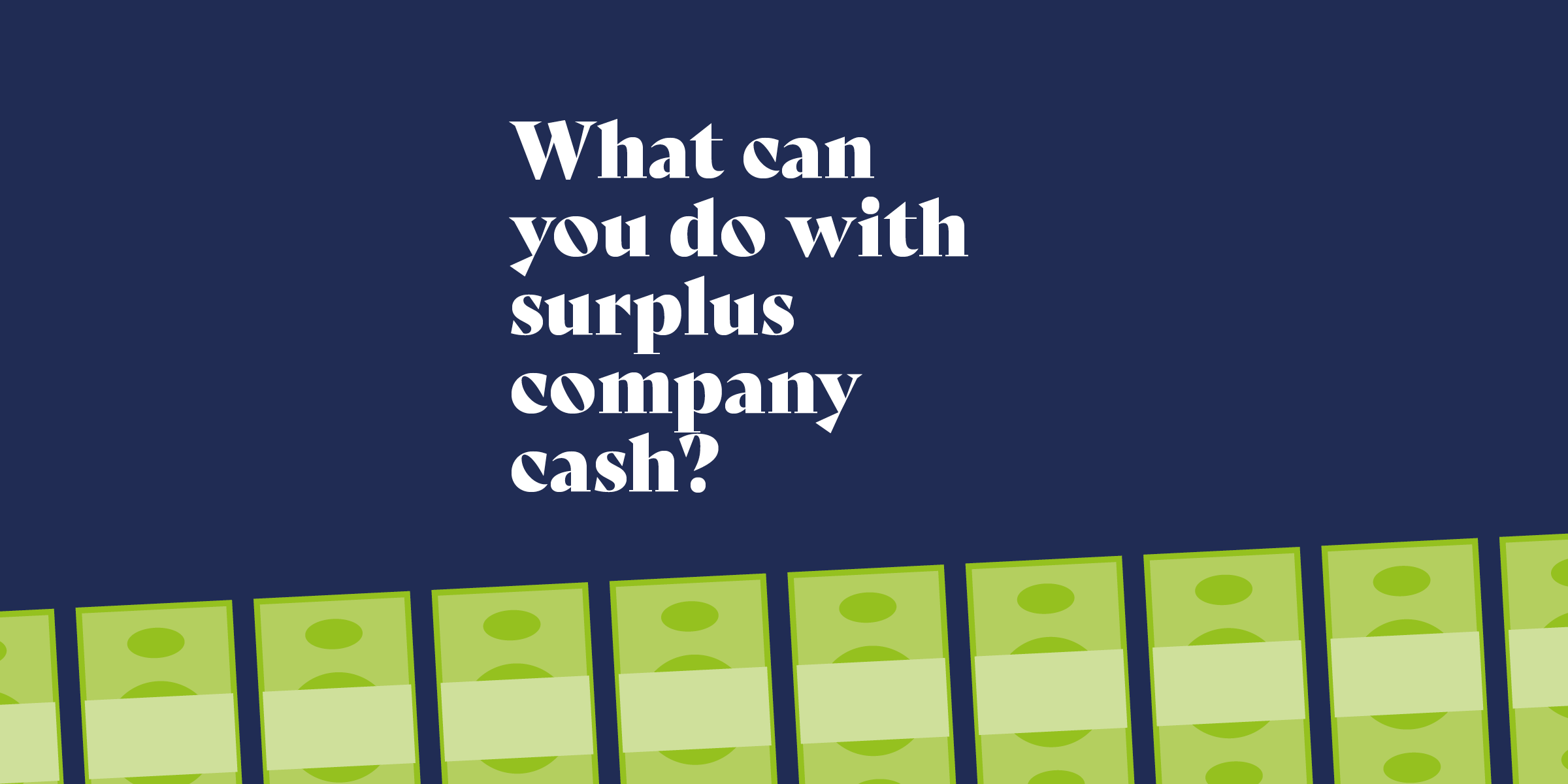Do you have surplus cash sitting in your business bank account?
Your cash is ‘surplus’ when it exceeds the money the company needs for its everyday operations. If you can buy stock, fund your work in progress, pay your bills and purchase replacement fixed assets and assets for expansion – and still have cash left over – this becomes surplus cash.
It’s good practice to have enough cash to cover any contingencies – generally, three months of outgoings. However, if your surplus cash is simply left in a bank account, this can be a missed opportunity.
Leaving cash sitting in the bank represents a wasted chance to invest it in building the business or extracting it for your own use. It also threatens long-term tax reliefs such as Business Asset Disposal Relief (formerly ‘Entrepreneurs Relief’) or Business Property Relief.
So, what’s the best way to utilise and maximise this surplus cash?
Forecasting how much cash you need to run the business
If there’s surplus cash in the business, you need to decide what to do with it. The first thing is to calculate how much money the business should have available at any one time.
This will include:
- Money to continue paying bills while waiting for customers to pay you
- Funds to increase stock and the value of work carried out that hasn’t been invoiced
- Money is set aside for large bills such as quarterly VAT or annual corporation tax payments
One way to track that is by carrying out a three-way (profit and loss, balance sheet, cashflow) forecast. That’s something we can help you set up and monitor.
You can never be 100% sure what’s around the corner, so it’s also sensible to build up a reserve to cover any unexpected downturn in business or unexpected costs.
Key ways to maximise your surplus cash
You need a certain amount of funds to keep the business operating smoothly. This amount will go up and down as the business moves through its operating cycle. Having contingency funds is very sensible, but you shouldn’t worry about the cash balance getting down to zero. It may not feel comfortable, but that’s why a buffer is a good idea.
If you have excess cash there are 8 things to consider doing with it:
- Leave it in the business – if there really is no better use for it, then why not? Make sure you get some returns on it, though. Think about using a savings platform, which not only helps spread the risk where the amount held is above the deposit protection limit, but can give you a higher interest rate by accessing more accounts than you could sensibly manage yourself.
- Pay down your loans – where you have surplus funds, you could consider paying off any loans that the business has, taking into account the interest rate being charged and any early-redemption penalties.
- Pay it back to your shareholders by buying back shares – buying back shares can be more tax-effective than paying dividends, but talk to us first – this is not a ‘DIY’ exercise.
- Pay it to the shareholders as dividends – as long as there are retained earnings available, this can be a way of extracting cash, although you should consider the personal tax implications for you, as the owner. You, and other owners in the business, can also take steps to manage your tax exposure by using options such as the Enterprise Investment Scheme (EIS).
- Make additional contributions into your pension fund – as the owner, topping up your director’s pension fund may be tax-deductible for the company, while also providing long-term benefits for you and your fellow directors/owners.
- Expand the business – using your cash to expand the business can include investing in increased capacity for what the company already does, or diversifying into something completely different – for example, venturing into the property rental market.
- Buy rather than rent – where the business is renting premises, think about buying suitable commercial property instead and putting your capital into bricks and mortar. Or, perhaps, on a smaller scale, purchase new plant and equipment to replace any items that you’re currently renting or leasing.
- Make charitable donations – cash tied up in a bank doing nothing is also achieving nothing; donating surplus cash to charity can make a real difference to the charities you support. And as an added bonus, you may get tax relief on these contributions.
Talk to us about making use of your Cash Planning
If you believe you may have surplus funds, talk to us about the various options available to use it more effectively. Also, talk to us about preparing a three-way forecast to help decide whether or not this is something you should be concerned about.
Call 01785 248939 and speak to Client Services or email us.
